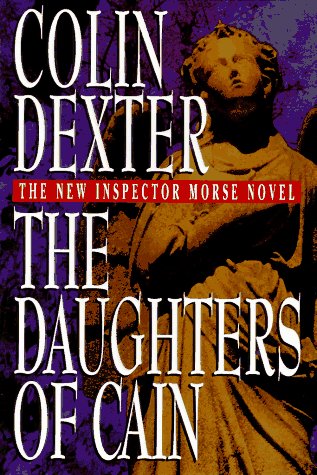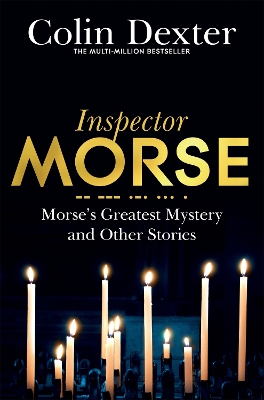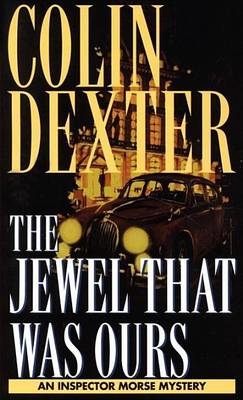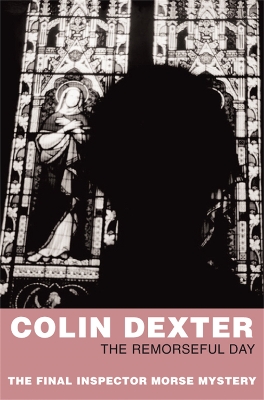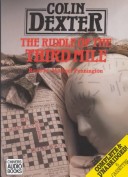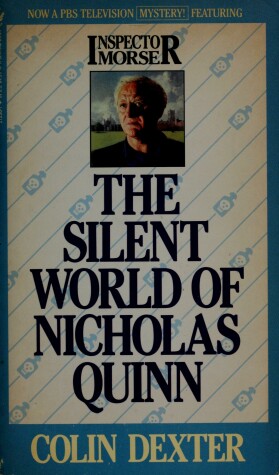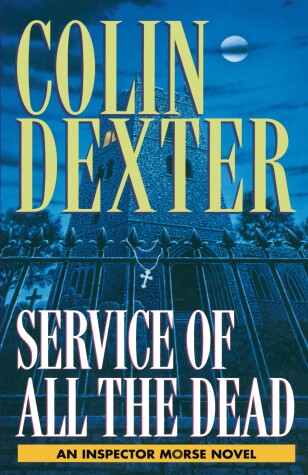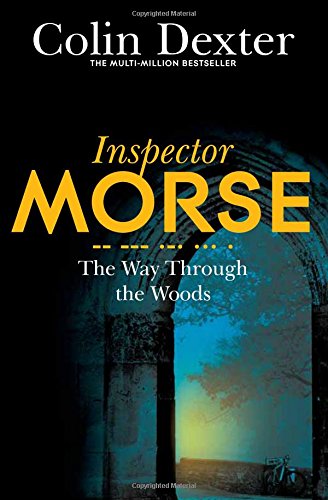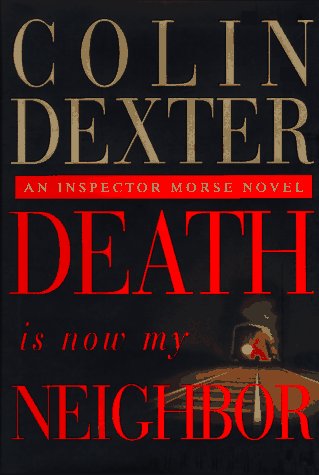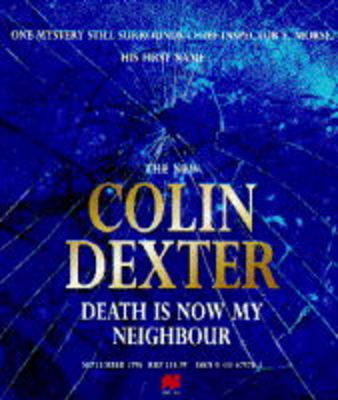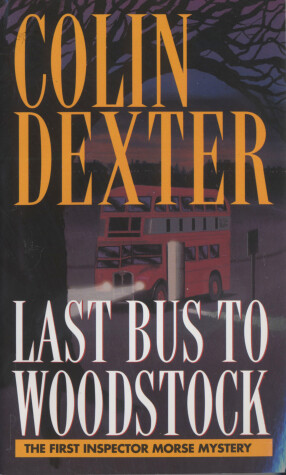Inspector Morse Mysteries
1 primary work • 15 total works
Book 11
#20
Morse had solved so many mysteries in his life. Was he now, he wondered, beginning to glimpse the solution to the greatest mystery of them all . . . ?
How can the discovery of a short story by a beautiful Oxford graduate lead Chief Inspector Morse to her murderer? What awaits Morse and Lewis in Room 231 of the Randolph Hotel? Why does a theft at Christmas lead the detective to look upon the festive season with uncharacteristic goodwill? And what happens when Morse himself falls victim to a brilliantly executed crime?
Morse's Greatest Mystery and Other Stories is a dazzling collection of short stories from Inspector Morse's creator, Colin Dexter. It includes six ingenious cases for the world's most popular fictional detective – plus five other tantalizingly original tales to delight all lovers of classic crime fiction.
--The New York Times Book Review
Inspector Morse isn't sure what to make of the truncated body found dumped in the Oxford Canal, but he suspects it may be all that's left of an elderly Oxford don last seen boarding the London train several days before. Whatever the truth, the inspector knows it won't be simple--it never is. As he retraces Professor Browne-Smith's route through a London netherworld of topless bars and fancy bordellos, his forebodings are fulfilled. The evidence mounts; so do the bodies. So Morse downs another pint, unleashes his pit bull instincts, and solves a mystery that defies all logic.
"[Dexter] is a magician with character, story construction, and the English language. . . . Colin Dexter and Morse are treasures of the genre".
--Mystery News
"It is a delight to watch this brilliant, quirky man deduce".
--Minneapolis Star & Tribune
--The New York Times Book Review
This time Inspector Morse brings the imposition on himself. He could have been vacationing in Greece instead of investigating a murder that the police have long since written off. But he finds the crime--the brutal killing of a suburban churchwarden--fascinating. In fact, he uncovers not one murder but two, for the fatal fall of St. Frideswides vicar from the church tower Morse reckons to be murder as well. And as he digs into the lives and unsanctified lusts of the late vicar's erring flock, the list of the dead grows longer. Not even the oddly appealing woman he finds scrubbing the church floor can compensate Morse for the trouble he's let himself in for. So he has another pint, follows his hunches, and sets out to untangle the deadly business of homicide. . . .
"A BRILLIANTLY PLOTTED DETECTIVE STORY."
--Evening Standard (London)
"WILY. . . ELEGANT."
--Observer (London)
--The New York Times Book Review
"YOU DON'T REALLY KNOW MORSE UNTIL YOU'VE READ
HIM. . . . Viewers who have enjoyed British actor John Thaw as Morse in the PBS Mystery! Anthology series should welcome the deeper character development in Dexter's novels."
--Chicago Sun-Times
Beautiful Sylvia Kaye and another young woman had been seen hitching a ride not long before Sylvia's bludgeoned body is found outside a pub in Woodstock, near Oxford. Morse is sure the other hitchhiker can tell him much of what he needs to know. But his confidence is shaken by the cool inscrutability of the girl he's certain was Sylvia's companion on that ill-fated September evening. Shrewd as Morse is, he's also distracted by the complex scenarios that the murder set in motion among Sylvia's girlfriends and their Oxford playmates. To grasp the painful truth, and act upon it, requires from Morse the last atom of his professional discipline.
"Few novelists write books as intelligent and deliciously frightening as those by Colin Dexter. . . . What Mr. Dexter does so well, so brilliantly, is weave a thick, cerebral story chock-full of literary references and clever red herrings."
--The Washington Times
"A MASTERFUL CRIME WRITER WHOM FEW OTHERS MATCH."
--Publishers Weekly
